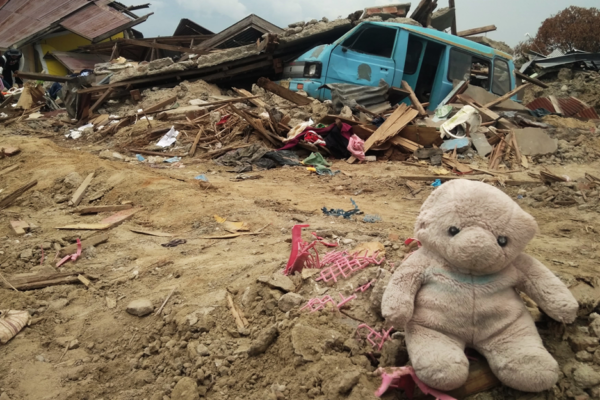The amazing thing about Jesus Christ is that the spread of the Gospel occurred after he was no longer physically among his followers. The message of the in-breaking of the Kingdom of God – the announcement that God had visited his people – was heard by all, after the inaugurator of the message was gone. People from all over the known world heard the disciples speak. Luke, in writing the Acts of the Apostles, wants to tell us that the apostles were so inspired and had such an amazing experience of his ongoing presence that they were swept away into preaching and proclaiming his name to the ends of the earth. What would they have said? John’s Gospel gives us some clue. They were commissioned with peace to preach the forgiveness of sins.
This commissioning is an interesting moment upon which to reflect. John tells us in his Gospel (John 20:19-23) that Jesus appeared to his disciples, who were hiding away in fear, and said to them ‘peace be with you’. Not only once but twice. John tells us that seeing the joy in their faces he again said ‘peace be with you’. Then he told them that just as the Father had sent him so he was sending them and he breathed on them saying: ‘Receive the Holy Spirit. For those whose sins you forgive they are forgiven; for those who sins you retain, they are retained.”
I think this text has often been interpreted too narrowly. It has been used to explain why bishops, the successors of the Apostles, and priests who work alongside their bishops, have been given the authority to forgive sins. Or to hold back forgiveness. In the course of time our practice of reconciliation has perhaps become a matter of authority and law. However, I think the text is bigger than that. The text is really about a Christian spirituality rather than a discipline or a law.
Christians are called to receive the peace of Christ in their lives. This is the gift that Christ brings back from the grave. Carrying the wounds of his crucifixion he breaks through into the lives of his disciples with the words of peace. In this way Christ’s resurrection puts an end to revenge, payback and bloodshed, which also could have been the response of the one who was abandoned, betrayed and denied by his friends. Instead he brings the gift of peace.
And he sends them out to do the same. He is asking his disciples, despite the wounds they carry with them in their own lives, (physical, emotional, psychological and spiritual), to walk out into the world with the gift of peace and reconciliation. It is an invitation to a way of life and a spirituality. The disciples are asked to be ambassadors of forgiveness, even to those who have inflicted wounds on them. It is a challenging spirituality. It is a spirituality that is addressed to all the faithful. Each one of us is called to be a disciple of forgiveness. In a fractured and broken world the gifts of peace and reconciliation are needed as much now as they were then.
May the Spirit who descends on us this Pentecost fill us all with the charism of peace and reconciliation.
Fr Brendan




Comments
Add Comment